What to do when your mom hates you
Why Does My Mother Hate Me?
Content Warning: Please be advised, the below article might mention topics that include physical abuse, sexual abuse, and domestic violence. If you or someone you love is experiencing abuse, contact the Domestic Violence Hotline 1.800.799.SAFE (7233). Free, confidential support is available 24/7.
At some point in their lives, just about everyone experiences issues with their parents and family life for various reasons. These may be minor disagreements or full-scale arguments, but in most cases, the situation eventually resolves itself, and things return to normal in the house. In some instances, though, the relationship has a more serious problem that results in long-term hostility because of more severe situations.
If you’re going through a difficult time with your mom, you might find comfort in knowing you’re not alone. Even if it seems hopeless, there are things you can do to improve your strained relationship with your mother and/or heal from the wounds it has caused. Rebuilding the bond and getting over negative emotions take time – and sometimes adult children of toxic parents might not even find it healthy or necessary to do it – but through communication and other steps, you can work towards a solution. Seeking help from an online therapist or family therapist is a great place to start.
How Has Your Mother Helped or Hurt You in Your Life? Let's Find Out Work Through Your Parental Issues With A Licensed Therapist
How many times have we heard someone say, “My mother hates me” or “I have a toxic relationship with my mother” and then the following day, everything is forgiven and forgotten? Sometimes, the feeling is mutual, and mom hate is much more apparent than expected.
On the other hand, hostility from parental burnout may be so prevalent in a mother-children relationship that it can appear as though a mother genuinely resents her child. This is a difficult situation for anyone; it can cause severe unhappiness and confusion, and it can be massively detrimental to a child’s development and childhood.
Our parents are supposed to love us without question, so what could possible cause a permanent rift between a mother and her child? If you’re in this situation, you may find yourself asking the question, “Where is the unconditional love that I desire? Does my mother actually hate me?” In this article, the content will explore this question and discuss possible explanations for your negative feelings regarding your mother’s love. We will also give various examples of these situations so you can grasp an idea about what to do.
Explaining Hate
If you find yourself thinking your mom hates you or even "I hate my mom," you are not alone. By definition, hate is a strong aversion or dislike for someone or something. Many times, when a child feels that their parent hates them, it’s really cognitive distortion steming from emotional pain. In other words, their thoughts do not match reality. Could it be that you are being too sensitive or that your mother is going through an unusually difficult time? Is it possible that what you perceive as hate is just a part of your mother’s personality?
Unfortunately, it’s also possible that you’re correct about your mother’s behavior; from time to time, some mothers do hate their children. If you find yourself in this situation, it can extremely painful. A trained therapist can provide the support you need.
If you find yourself in this situation, it can extremely painful. A trained therapist can provide the support you need.
Why Don’t My Mom And I Have A Good Relationship?
There is, of course, no one reason why some mothers hate their children or why mother may dislike her child, but there are some solid generalizations we can consider. Firstly, what a child interprets as hate may actually be a form of mother’s love from the mother’s point of view. You may have heard people say that a child’s greatest obstacle is the unlived life of his or her parents. This means that a mother will push her child to surpass her own achievements. In other words, your mother may be trying to encourage you because she loves you and wants the best for you, but it might feel more like criticism or hatred. Sometimes, if a mom hates their child, it’s because there are deeper mental health issues at hand than what’s going on in her children’s lives. Sometimes, if you notice your mom hate what you’re doing, or if your mother sees what you’re doing as “wrong” because you’re not following her rules, that of course creates more issues down the line too.
If you’ve ever heard of “tiger parenting,” then you know the concept. Studies show that tiger parents are strict or demanding, pushing their children to attain extremely high levels of success. This was the case of Joan and her daughter Daria. Joan grew up in a very toxic, abusive family. She never got to finish school, and she married young. When she had a daughter of her own, Joan pushed for perfectionism. Daria had to look the part, act the part, and be the part with perfect hair, perfect grades, and a perfect plan for college, not to mention the rest of her life. If Daria didn’t walk the line, Joan became cold and cruel.
In this example, it’s easy to see why Daria would feel that her mother hated her, but that wasn’t true at all. In fact, Joan loved her daughter deeply. Out of love, Joan pushed Daria to be the best. Unfortunately, Joan failed to realize that her self-serving tactics actually hurt her daughter, pushing her further and further away.
With that in mind, when you ask yourself, “Why does my mother hate me?” or “why does my mom loves everyone except me?” think about her negative behavior. Could it be her way of trying to help you grow and be your best? If so, maybe you could speak to her about the way her pressure and behavior makes you feel. She might be open to talking about ways to support and love each other better.
Could it be her way of trying to help you grow and be your best? If so, maybe you could speak to her about the way her pressure and behavior makes you feel. She might be open to talking about ways to support and love each other better.
If you feel your mother hates you, another possible cause is jealousy. Although rare, it’s possible that your mother is jealous of something about you. Perhaps it’s your looks, your confidence, or your success. Have you done something that she was never able to accomplish? Are you a younger, more beautiful version of her? You may never determine the reasoning behind your mother’s dislike of you, but it helps to realize that our mothers are flawed human beings, just like everyone else, and her emotions will occasionally get the better of her.
Sometimes mom hate isn’t because of something you did, but your mother sees you as a threat, and she might struggle with accepting who you are. She might act jealous because she doesn’t have the looks that you do, and mom hate can be as small and subtle as she may try to control what you wear or may make inflammatory comments about how you look. Which is never nice.
Which is never nice.
Jealousy can be one of the hardest emotions for a person to control. While a mother may know that she shouldn’t be jealous of anything about her child, jealousy can manifest in many ways, including hostility or avoidance.
There is also the possibility that you did something in the past that caused a rift with your mother. Are you aware of making a mistake that might have hurt her feelings? Was there some kind of blow-up between the two of you? If so, it might be time to apologize and make amends, regardless of who is right or wrong. There are two sides to every story, and sometimes mom hate might be because of something that you did, whether you know it or not.
How Has Your Mother Helped or Hurt You in Your Life? Let's Find Out
Work Through Your Parental Issues With A Licensed Therapist
What Can You Do?
If you’re convinced your mom hates you but you’re still interested in having a healthy relationship with her, talk to her. Let her know how her words, actions, and expectations are affecting you. There is a very good chance she doesn’t even realize the impact of her behavior. There might be other factors at play, like parental burnout, that are causing this strain on the relationship. If you have similar interests, maybe you could do something together.
Let her know how her words, actions, and expectations are affecting you. There is a very good chance she doesn’t even realize the impact of her behavior. There might be other factors at play, like parental burnout, that are causing this strain on the relationship. If you have similar interests, maybe you could do something together.
You can’t change your mom; you can only do you, so do it right. Read self-help books and books about family relationships. Focus on yourself, practice mindfulness and deep breathing, and you might find that your relationship with your mother improves along the way. If it doesn’t, then at least you’ve invested in your own growth. Don't risk your own health and safety. A mother should be a role model, but sometimes they aren't.
Forgive her, and move on if you can. Forgiveness frees you from the pain and resentment you’ve been harboring toward your mother. If you let it, the anger will consume you, and your other relationships may begin to suffer.
If it is affecting your mental health and mood, you can always talk to someone about this too. Talking to friends or siblings is a great resource for support. A sibling could offer advice or even relate. A friend could give you support and advice and make you feel less alone. Having a conversation with your father about your concerns could also be effective in helping you talk to your mom. Additionally, talking to a teacher might be helpful if you trust them. Sometimes, a therapist or someone who understands the mental health effects of not having a mom in their life can help you understand your feelings a bit better, and help you overcome any feelings of insecurity. A lot of times, they may also help you rekindle the relationship with your mother.
If you still live with her, try to keep the peace as much as you can, for your own mental health, and hers as well. But, try not to get too wound up, and you should try to keep your own sanity and mental health in check, no matter what.
The most important thing to remember is that your mother’s treatment is not a reflection of your worth, but instead reflects her own struggles with love and relationships. Her dislike for you, if it actually exists, says nothing about your character or your value. You must accept that, if your mother does indeed take issue with you, it’s about her, not you. She needs to address the issue on her own.
Even though it’s not about you, this probably doesn’t make her feelings and behavior hurt any less. For this reason, you’ll benefit from professional counseling, either alone or with your mother. If you believe you may have caused this problem or if you need help dealing with the situation, then you can seek professional advice to process your emotions and find a healthy way to move past the pain. BetterHelp has more than 8,000 licensed therapists who specialize in helping people. Check out some counselor reviews below, from people experiencing similar issues.
You can get mental health treatment you need in a safe space, and help you sort through the emotions and problems that have come about. A lot of times, seeking help from online therapy services can be really impactful.
A lot of times, seeking help from online therapy services can be really impactful.
If your mother has hurt you, or there is domestic violence present, don’t be afraid to call the domestic abuse hotline. A toxic mother may not be just mentally abusive, but physically as well.
Sometimes, mothers and daughters can rekindle their relationship too, and by getting apt mental health treatment, you can fix your relationship with your mother, or at least have it as cordial as possible. Mother and daughter counseling is available too, and she may tell you hearing my side of the story matters too” and you should. Sitting down, talking with your mother, and improving that is not only good for her mental health, but yours as well.
Let’s face it, toxic parents are very rough to deal with, but if you’re really struggling, you can always sit down with them and talk it out. Some topics are difficult to discuss and seeing them from another perspective can be helpful. It’s not just good as a temporary measure, but as a more permanent option as well, so it can help you get your mental health on track and feel happier too.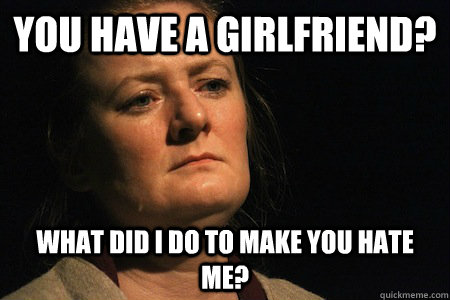 It's not your fault that your parent might not love or treat you the way they should. Don't let this have power over you. The following statements reveal how life-changing therapy can be.
It's not your fault that your parent might not love or treat you the way they should. Don't let this have power over you. The following statements reveal how life-changing therapy can be.
Counselor Reviews
“Erin has been incredibly helpful to me as I navigate a tough situation with my family. She’s understanding and compassionate and non judgmental.”
“Ava was a great help to me. She supported me through a transition period in my life and also helped me work through some issues that I have been facing with a parent. She is very frank but also listens and reads with a keen and empathetic ear.”
Final Thoughts
Although you may have come to terms with the fact you don’t have a good relationship with your mother, you can find a way to heal. It’s human nature to want to please others. When it comes our parents in particular, we experience an even more profound sense of joy because we’re hardwired to want to make them proud of us. It can be distressing when this seems impossible, but help is available to you. You can start working through your feelings and, with the right tools, move toward healing today. Take the first step.
It can be distressing when this seems impossible, but help is available to you. You can start working through your feelings and, with the right tools, move toward healing today. Take the first step.
FAQs
What Do I Do If My Mom Hates Me?
Try talking to your mother and let her know your feelings. Tell her how you feel and how her words and actions affect you. She may not realize how her behavior makes you feel. Keep in mind mom hate may not be from your actions, but she could be struggling with how to accept you as you are. She may have insecurities viewing you as a threat. Also, find a therapist to help work through your feelings.
Why Is My Mom Always Angry At Me?
Sometimes a mother’s words or actions may not intend to hurt you, but she could have unresolved emotional concerns from her past she has not confronted. It could be an undetected mental health concern such as depression, anxiety, or bipolar disorder affecting their behavior. It helps to encourage her to find a therapist to talk to about her feelings and your relationship. You can also find a therapist for yourself and work through unwanted feelings you may have about your mother, particularly if you need guidance on how to approach her with your feelings. You can find a treatment center to address emotional wellbeing concerns or seek a referral from a primary physician.
It helps to encourage her to find a therapist to talk to about her feelings and your relationship. You can also find a therapist for yourself and work through unwanted feelings you may have about your mother, particularly if you need guidance on how to approach her with your feelings. You can find a treatment center to address emotional wellbeing concerns or seek a referral from a primary physician.
What Is A Toxic Mother-daughter Relationship?
A toxic relationship with a parent occurs when no boundaries are present. A child may find it difficult to approach their parent out of fear due to emotional pain. It may include arguing, emotional conflicts, and disagreements that create tension between mother and daughter. A child may feel less important or unworthy due to negative behaviors expressed by their parent, leading to emotional damage. Toxic relationships with parents often develop in high school and may continue into adulthood. Teens that feel this way may engage in unhealthy behaviors to deal with their emotional pain, such as eating disorders.
Sometimes an undiagnosed concern like depression, anxiety, or bipolar disorder could be behind toxic behaviors. There are different types of therapy options to help you and your mother sort through your feelings to encourage a healthier relationship. Treatment center options are providing various types of therapy for concerns related to emotional, mental, and physical health. Having a relationship with a toxic mother may seem impossible, but if you find a therapist to talk to about your concerns, it could help with mending emotional wounds.
Is It Possible To Not Love Your Mother?
Some people admit they do not love their mother, and it likely relates to the emotional hurting. It is common for teenagers to feel this way about their parents when in high school, especially when you don’t see eye to eye when parents try to help you make better decisions to avoid consequences. Some adults may feel they don’t love their mother if they feel resentment or still feel hurt from their words or actions from when they were years younger.
If you do not love your mother, accept the feelings you have for her. Some people must put distance between their mother and themselves to preserve their emotional and mental health. Many people realize they are hurting when they don’t love their mother and that feeling gets bothersome. Sometimes it leads to unhealthy behaviors such as substance abuse or self-harm. You can find a therapist to help you explore and understand personal feelings about your mother. You can find a treatment center to help with substance abuse and to learn how to cope.
Do Parents Prefer First Born?
Some researchers say parents may prefer their first child based on how they are treated, but many may disagree. Parents that love their children unconditionally will love all their children the same way. They will make sure their children’s needs are met while learning how to meet more effectively with each child. Parents may build their love for their children based on the foundation started by their firstborn.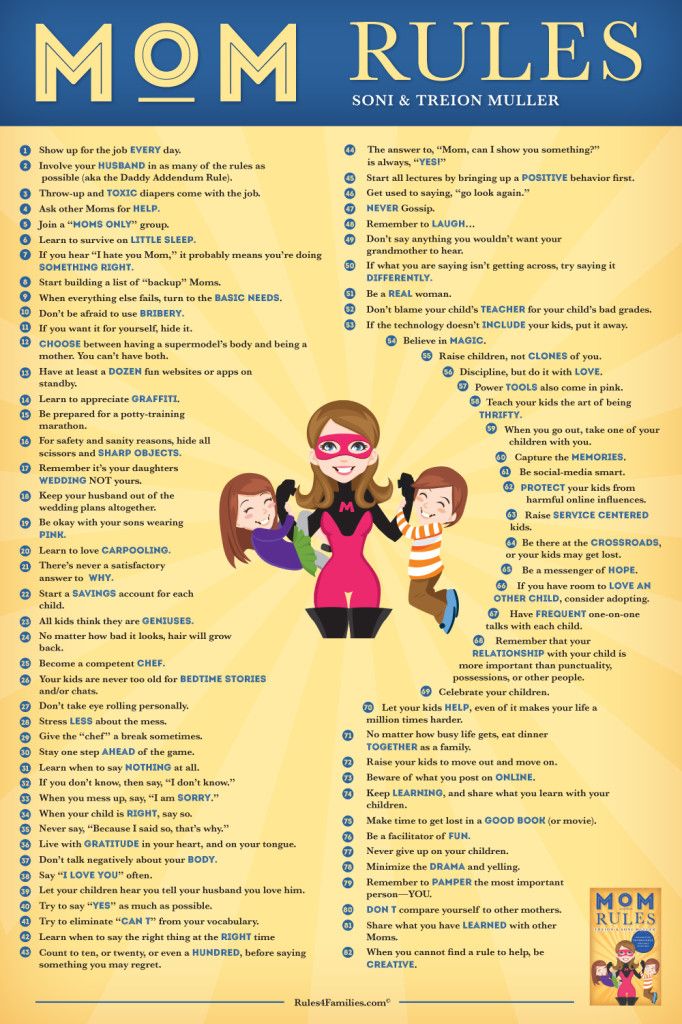
Do Mothers Love Their Sons More Than Daughters?
Some researchers suggest mothers may favor their sons more than their daughters because boys tend to be less emotional than girls. Mothers are likely to be more critical of their daughters, but mothers are also more likely to invest more time in their sons and their abilities. Some mothers may not admit they love one child more than the other. However, they may not intend to love their children differently because of their gender.
What Is First Born Syndrome?
First Born syndrome occurs with the firstborn child. The first child feels they are the center of attention with their parents as an only child until the second child is born. The first child becomes demanding, wants all the attention, and feels entitlement. Parents often cave into giving their firstborn what they want, thinking it will make things better.
Why Do I Cry When My Mom Yells At Me?
You feel hurt someone you care about, such as your mother is treating you this way. It is never a good feeling to be yelled at by someone that loves you. Sometimes the words she uses may hurt you, and she does not realize it. You can find a therapist to help you deal with emotional pain from your mother. Many who have taken the time to find a therapist to talk about their feelings gain more understanding about why they feel hurt and why it may not be intentional. It is essential to learn how to deal with emotional pain. When ignored, it leads to unhealthy behaviors such as substance abuse or self-harm, such as through eating disorders. There are treatment center options and online therapy available, providing emotional support for mental wellness. You don’t have to feel shameful for seeking help. You can find a therapist or a treatment center to help you work through emotional pain and how to improve relations with your mother.
It is never a good feeling to be yelled at by someone that loves you. Sometimes the words she uses may hurt you, and she does not realize it. You can find a therapist to help you deal with emotional pain from your mother. Many who have taken the time to find a therapist to talk about their feelings gain more understanding about why they feel hurt and why it may not be intentional. It is essential to learn how to deal with emotional pain. When ignored, it leads to unhealthy behaviors such as substance abuse or self-harm, such as through eating disorders. There are treatment center options and online therapy available, providing emotional support for mental wellness. You don’t have to feel shameful for seeking help. You can find a therapist or a treatment center to help you work through emotional pain and how to improve relations with your mother.
What are the signs that your mother hates you?
In an ideal world, mother-child relationships would be easy: we assume that moms must love their kids unconditionally because that’s the way it’s ‘supposed’ to be, and that children love them back regardless of their mother’s behavior or actions. In the real world, though, human being relationships can be extremely complex, and not all mothers (or children) fit into this mold. Studies show that the number of depressed mothers has been steadily increasing for years, partly because motherhood is in many ways harder today than it was decades ago, but also because society’s idealized expectations of motherhood leave countless moms feeling isolated and unfulfilled. Unfortunately, this emotional pain coupled with potential mental health issues can lead to moms resenting their children and acting in ways that make the son or daughter perceive that their mother hates them. These actions might include:
In the real world, though, human being relationships can be extremely complex, and not all mothers (or children) fit into this mold. Studies show that the number of depressed mothers has been steadily increasing for years, partly because motherhood is in many ways harder today than it was decades ago, but also because society’s idealized expectations of motherhood leave countless moms feeling isolated and unfulfilled. Unfortunately, this emotional pain coupled with potential mental health issues can lead to moms resenting their children and acting in ways that make the son or daughter perceive that their mother hates them. These actions might include:
- Constantly giving you harsh criticism
- Giving you the silent treatment often or for no reason
- Having no interest in spending quality time together
- Not consoling you when you’re sad
- Engaging in verbal or physical abuse
Why would a mother hate her daughter?
A toxic mother might hate or deeply dislike her daughter because she has a profound dissatisfaction in her own life.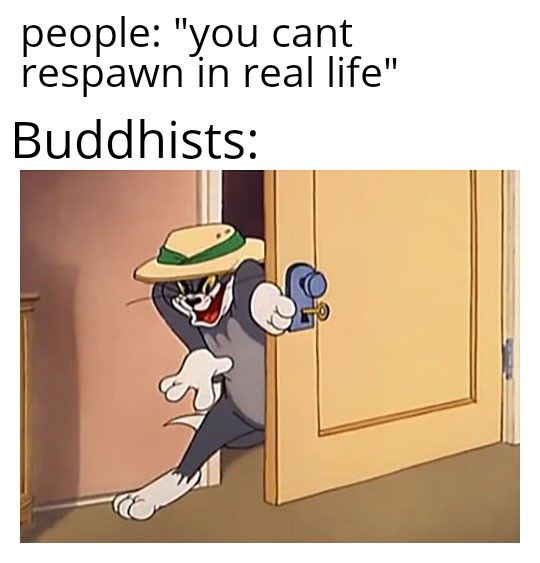 If you are going through these issues with your mother, talking to a qualified mental health professional can help you get to the root cause of these negative feelings and find ways to prioritize your own well being in your relationship with your mom.
If you are going through these issues with your mother, talking to a qualified mental health professional can help you get to the root cause of these negative feelings and find ways to prioritize your own well being in your relationship with your mom.
My Mom Hates Me: 7 Things You Can Do When You Feel Hated By Your Mother
Feeling like you’re hated by anyone can bring about some very complicated and difficult emotions. It can feel especially harsh when this hate seems to be coming from your own mom.
It is often tricky to understand where these feelings come from and know how best to address them. Many times, when you feel like your mom hates you, this is genuinely not the case—there may be other factors and conflicts at play that are causing tension in your relationship.
However, if you feel that the hatred you perceive is more serious, longterm, or otherwise harder to individually manage, it is crucial to understand what your options for external support are.
If you feel that you have exhausted all of your options to better your relationship with your mom, or if you have experienced or continue to experience abuse, know that you deserve to get help.
If you or someone you know is experiencing any type of abuse, the National Domestic Violence Hotline can be reached at 1-800-799-7233 and is available 24 hours a day, 7 days a week.
If your feelings are new, or if you want to understand them better, it might be helpful to break them down. In this article, we will help you better understand your feelings, identify them, and also provide resources and options for someone who is genuinely hated by a parent.
Here are seven things you can do when you feel like your mom hates you.
- Identify Where Your “My Mom Hates Me” Thoughts Are Coming From
Feeling Hated By Anyone Can Be Extremely Difficult
We're Here To Listen - Speak With A Licensed Family Therapist Online
Think about why you feel like your mother hates you. It may help to get out a pen and paper and write about your feelings for ten or fifteen minutes.
Ask yourself some questions about the situation.
Did a specific instance trigger your thought of “my mom hates me”? Or is this more of a general feeling? Maybe you got into a fight, during which your mom actually said she hates you, or perhaps she forgot something important to you. Perhaps nothing specific happened, but you feel like your mom treats you differently from your siblings. Maybe you just have the sense that she hates you.
Whatever the case, just knowing where your feelings are coming from can help. You may realize that your mom doesn’t really hate you but was angry and said something she didn’t mean in the heat of the moment.
You may also realize that there’s something your mother repeatedly does that makes you feel bad. While this may be a painful realization, remember that it is sometimes easier to deal with a specific situation than a general feeling of “my mom hates me.” Once you understand your beliefs, you can better express them.
- Manage Your Expectations AndGet On The Same Page
We have expectations for everyone. We expect strangers to wait in line at the grocery store, not cut in front of us. We hope our friends will listen to us if we’re going through a rough time. And we tend to expect a lot from our mothers.
We expect strangers to wait in line at the grocery store, not cut in front of us. We hope our friends will listen to us if we’re going through a rough time. And we tend to expect a lot from our mothers.
You and your mother may have different expectations of what it means to love someone.
It’s entirely possible that your mom loves you very muchbut shows it in a different way than you would expect her to or want her to
Think of a situation in which a child hates piano lessons. The mother knows that the child hates piano lessons, but she still makes her go every Tuesday night. The child thinks her mother must hate her and that this is some form of cruel and unusual punishment.
However, the mother is likely not thinking of this at all. In fact, she might be thinking that playing the piano is a great skill. Maybe she thinks it will help her child get into college and build a better future. Perhaps the mom even wishes that her own mom gave her this opportunity and thinks she’s giving her child a great gift.
It’s entirely possible that your mom has your best interest at heart, even if, to you, it doesn’t feel that way.
It’s also possible that your mother doesn’t realize what your expectations are, or that there is a legitimate reason that your mother can’t meet them.
Think about your expectations of your mom. Are they realistic? If they are, does she realize what you want? Is there a legitimate reason why she can’t meet these expectations? And is it possible that she is showing you that she loves you in a different way than you want to be loved?
Understand that your mom is your mom, but she’s also a person. She’s liable to make oversights. She doesn’t always know how you feel, especially if you haven’t told her. If you feel like your mother is failing to meet basic expectations, like caring for and respecting you, you are not doing anything wrong by expecting better from her.
Working to understand the reality of the situation, in this case, can help you determine if it is something you may be able to work on together or if it may be time to seek outside help.
- Don’t Take It Personally—Try ToSee Your Mom’s Point Of View
Sometimes a situation has nothing to do with you—but you may feel like it does. Welcome to personalization.
Personalization is a type of cognitive distortion. When reality and how you perceive reality don’t match up, you experience what’s called a cognitive distortion.
The cognitive distortion of personalization can make you feel like a situation that is beyond your control is all your fault. You may blame yourself for events that you don’t—and can’t—control.
It’s easy to start to think your mom is upset at you if she speaks harshly to you or snaps at you, or if you struggle to find time to spend with her. In cases like this, it’s possible your mom’s behavior has nothing to do with you. Your mom might be in a bad mood. She may be overworked, stressed, or dealing with another problem.
Think about your mom’s circumstances. Maybe she recently lost her job, or maybe she’s currently overworked. Is it possible that she had a bad day? She could have let out her frustrations on you.
Is it possible that she had a bad day? She could have let out her frustrations on you.
It may feel like it isn’t fair to simply look past or forgive actions, words, or other behaviors that hurt your feelings or make you upset.
Your emotions and reactions are valid, and they should not be overlooked; however, it can be helpful and comforting to remember that things are not your fault. Try to remember that your mom is only human and is susceptible to bad days—just like you. In some cases, it may be best to try to understand and let things go.
It is also essential to understand in which cases it may not be best to simply try and move past hurtful actions or words.
If your encounters with your mother are frequently upsetting, belittling, frightening, or otherwise causing emotional or physical distress, it is essential to take them seriously. While it is normal for your mom to have her own stressors and stressful days, this is not an excuse for abusive behavior.
Part of not taking it personally may be understanding that you are not to blame for your mother’s actions and that you deserve to receive the outside help and support you may need. It might benefit you to reach out to and seek assistance from supportive family members, friends, or mental health professionals.
It might benefit you to reach out to and seek assistance from supportive family members, friends, or mental health professionals.
- Talk To Your Mom About How You Feel
One of the best things you can do when you feel like your mother hates you is to talk to your mom about how you feel. Communication is a key part of problem-solving; if your mother isn’t even aware of how her actions are making you feel or does not understand their real impact, she may not know how to change for the better.
If you do decide to sit down and have a conversation with your mom, try and pick a time when both of you are relatively calm. It’s probably not best to try to talk to your mom about something serious when she is getting ready to go to work, for example, or in the middle of making dinner. You might ask your mom to take a walk and talk then. If your mom is especially busy, ask her to plan a specific time when you are both free in order to talk.
During this conversation, express your point of view and what you’ve been feeling as clearly and directly as possible. You want to help your mom to understand you.
Try to remain calm. If you need to, take a few deep breaths to alleviate anxiety. It’s easy and natural to feel defensive or emotional if you are talking about something that is difficult and painful, but it’s important to focus on your communication rather than emotion. Try to remember that this conversation may be difficult for your mother too.
Avoid accusatory statements; though it may be tempting, they are more likely to initiate confrontation rather than conversation. Try not to blame your mom, but to help her understand things from your point of view.
Instead, try to use sentences that start with “I feel.” For example, “I feel hurt when you don’t show up to my soccer games. Soccer is really important to me. Sometimes it even feels like you hate me.”
Your mom might be shocked to learn that you feel this way. It’s possible she did not even realize that you feel like she hates you.
It’s possible she did not even realize that you feel like she hates you.
Whatever the case, when you talk with your mom, she can understand what you’re feeling, and you can get some insight into her point of view. Talking about your feelings with your mother may give you both the opportunity to understand each other and hopefully start to form a solution.
If you’re not able to talk with your mom, or if your issues with your mother have been going on for a long time, you might want to seek out a qualified mental health professional. Remember that you are not—and don’t have to be—alone. You might consider talking to a therapist using an online platform likeReGain. You can connect with the licensed therapists at ReGainandreceive advice on your family dynamic from the comfort of your home. Their informed insights can help you learn how to cope with your feelings and best approach your relationship with your mother.
- Spend Quality Time With Your Mom
You may feel like your mother hates you because you don’t spend enough time together. Sometimes you may want to spend time with your mother, but she seems to have no time for you.
Sometimes you may want to spend time with your mother, but she seems to have no time for you.
This doesn’t necessarily mean that your mom hates you. In fact, she may be (and very likely is) doing something else to take care of you and your family, or perhaps she may have demanding commitments outside of the home. Moms do a lot of stuff behind the scenes to care for their kids. Your mom may have way too many things to do every day and could be struggling with time management. That can include making time for the important people in her life.
Remember that just because your mom has other things to do, it doesn’t mean that she hates you. This is another instance in which communication may be a useful tool; voicing your feelings about distance in your relationship with your mother may help her to realize how her actions have been affecting you.
If you do have the chance to spend quality time together, make the most of that time.
Think about things your mom likes to do and plan a “mom date. ” If she loves rom-coms, ask her to go to the movies. If she studied art in college, ask her to go to an art show or a gallery.
” If she loves rom-coms, ask her to go to the movies. If she studied art in college, ask her to go to an art show or a gallery.
Try to avoid anything that might provoke conflict. If you tend to argue about spending too much money, you might want to avoid suggesting shopping or going out to an expensive restaurant. Instead plan something free or cheap: play a game, do a puzzle together, go swimming or fishing at the lake.
Sometimes, your mom really might be too busy to hang out with you. Remember that this doesn’t mean that she hates you or doesn’t want to spend time with you. In this case, you are not a problem, nor are you a burden. She may just have a lot on her plate.
If your mom is short on free time, you may have to get creative and come up with ways to bond, even while completing household tasks together. You can plan to cook dinner together one night. You can offer to help her in the garden. You can fold laundry and watch a tv show together.
Doing housework together might not be the most exciting thing in the world, but it can be an excellent opportunity to spend time with your mother when she’s especially busy—to show her that you care about her.
It’s also an excellent time to talk with her. Maybe while you’re cutting up potatoes, she can tell you a story about her childhood.
If you have trouble thinking of what to talk about, brainstorm a few ideas before you actually hang out. You can ask your mom about the TV shows or music she liked as a kid or see if she’ll tell you some stories about your own childhood. You can ask her about her first job or how she learned to drive. If you’re worried about conversation flowing, a great way to start is by asking questions and listening to the replies carefully. You might be surprised how much you learn about your mom.
Another way to spend time with your mom is to plan a weekly ritual. Maybe every Wednesday night you can watch a favorite TV show together. You can go for a walk on Fridays or clean the whole house on a Sunday. Even a small ritual can be an excellent way to check in with your mom every week and to help form a better relationship with your mother.
Overall, spending time with your mom is a great way to have a better relationship with her. Remember that there may be factors that make spending time together tricky, but they are not your fault. Try to figure out any way to carve out more quality time with your mom, especially when you are both busy, and make the most of that time.
Remember that there may be factors that make spending time together tricky, but they are not your fault. Try to figure out any way to carve out more quality time with your mom, especially when you are both busy, and make the most of that time.
- Use The Power Of Gratitude
Feeling Hated By Anyone Can Be Extremely Difficult
We're Here To Listen - Speak With A Licensed Family Therapist Online
Many times, if we get stuck in a cycle of focusing on the bad, it’s really easy to overlook the good. (This is another cognitive distortion!)
If you’ve felt like your mom hates you recently, you may be able to turn these feelings around by shifting your focus to the good things about your relationship with your mom.
Studies have shown that cultivating gratitude has a powerful effect on strengthening relationships. Expressing thankfulness is linked not only with increasing positive feelings towards another person, but also helps us feel more comfortable voicing our needs and concerns within a relationship.
One gratitude exercise you might try is to list at least ten things about your mom or your relationship with your mom that you love and feel grateful for. You can think about things that you like about her, but you might also think about things that she does for you behind the scenes (e.g., work to support you, make you dinner every night).
You might also think of a favorite memory you have of your mom.
If you are going through a rough patch, it can also offer you the opportunity to remember moments in which you felt connected to your mother and remember that she cares for you.
Maybe your relationship issues are more longterm or complicated. In this case, offering gratitude for good moments may facilitate a healthy and productive discussion. Remember that it is normal and understandable to feel overwhelmed, stressed, or just generally upset when trying to remedy a struggling relationship. Asking for help may be an essential step for both you and your mother.
Overall, if you can focus on positive, good things, you may be able to change your relationship with your mother for the better. Understand the role of positive and thoughtful communication, but also don’t be afraid to recognize when it may be time to seek outside assistance.
Understand the role of positive and thoughtful communication, but also don’t be afraid to recognize when it may be time to seek outside assistance.
- Get Help In Cases Of Abuse
In the case of domestic violence, reach out for help as soon as quickly and safely and possible.
Domestic violence and abuse can manifest themselves in a variety of ways, and it may not be as obvious as it seems if you have become accustomed to harmful behaviors. It may even be hard to accept that you have been a survivor of any kind of abuse, but it is crucial to remember that it is not your fault.
There is a difference between normal disagreements or tension and genuine abuse. Red flags may include frequent yelling or arguing, name-calling, humiliation, degradation, isolation, and other manipulative behaviors.
If you or someone you know is experiencing any type of abuse, the National Domestic Violence Hotlinecan be reached at 1-800-799-7233 and is available 24 hours a days, 7 days a week.
If you feel hated by your mother because of these sorts of situations, it may be best to realize and understand that remedying the situation could be beyond your capability. Trying to fix abusive and deeply toxic relationships by yourself can cause unnecessary stress and emotional trauma. If you suspect you are a survivor of abuse, it is important to understand what your resources are to heal yourself and, if appropriate or wanted, your relationship with your mother.
It may be daunting or confusing to try and understand where to start. If you are still in school, you might talk to a teacher, school counselor, or coach. If you can’t talk to anyone at school, tell a friend’s parent, or a qualified mental health professional. Let them know about your situation with your family. They will be able to get you the help that you need.
If you are an adult, it may be harder to know where to turn. Remember that other family members and friends can be a great source of support.![]() You may find it helpful to reach out to other survivors of abuse through support groups. It can be incredibly healing to have a sense of community and a strong system of support.
You may find it helpful to reach out to other survivors of abuse through support groups. It can be incredibly healing to have a sense of community and a strong system of support.
Please remember that if your mother is abusing you, it is not your fault. Her abuse is not a reflection of your worth, and no matter how things may feel, you are not responsible for the behavior of someone else. If you feel you are truthfully hated by your mother, it is important to set boundaries, limit exposure to toxic behavior, and get the support that you need in order to heal.
"Why doesn't my mother love me?" and 5 more questions about traumatic relationships with mother - Knife
Clarification: the book is addressed primarily to daughters, but we believe that the problems listed are familiar to all people who have unsuccessfully tried or are trying to woo their parents.
1. Why doesn't my mother love me?
This question is like a weed with long and tenacious roots. It is especially dangerous because you believe that if you manage to find an unambiguous answer, you will be able to change that which does not allow you to love, whatever it may be.
It is especially dangerous because you believe that if you manage to find an unambiguous answer, you will be able to change that which does not allow you to love, whatever it may be.
Chances are you, like me and every other little girl in the world, believed in the mother myth that all mothers love their children. Therefore, just asking this question, you experience fear and shame.
If only I could find the answer! Then, perhaps, everything will change, and the mother will turn into one of those mothers who, in a fit of tenderness, tousle their daughters' hair, always smile at them and look into their eyes. All abandoned, neglected girls dream of this.
The problem is that any answer you can find always contains only a grain of truth. To begin with, what you are most likely thinking: the whole point is that you are not at all like your older sister, whom your mother obviously loves, but no matter how hard you try to be the same as her, you remain itself and nothing changes.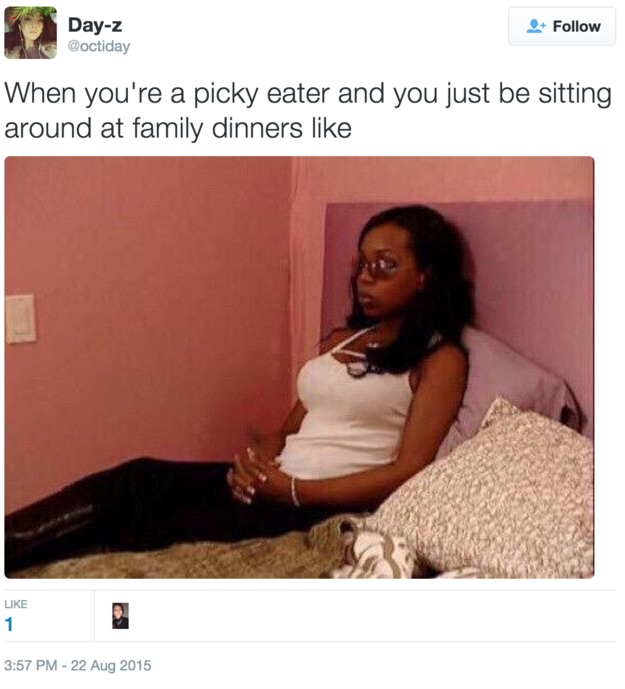
At another moment, it dawns on you that everything will change your success and popularity, and now you are already studying for only A and playing the main role in a school theater production, but this does not help either. Or, on the contrary, you go into all serious trouble with the thought that any attention is better than ignoring and neglecting.
Finally, as an adult, you re-evaluate your mother's emotional history and conclude that it is best to treat her with empathy and compassion, but then you find yourself even more vulnerable because you lost your caution, and you understand that the pain of rejection and its constant attack on you is as excruciating as ever, and your empathy won't stop it from trying to trample you into the dirt.
As a child, I often asked my mother if she loved me. She gave an evasive and, as I already understood, deceitful answer: "Every mother loves her child." However, she never answered with the three simple words I had been waiting for. (To be precise, I was expecting four words because my mother always spoke to me in Dutch, but that's not the point.)
(To be precise, I was expecting four words because my mother always spoke to me in Dutch, but that's not the point.)
I always thought that the mother was avoiding this question in order to protect me and not destroy me with a sincere answer. It wasn’t until I wrote the book Bad Mothers that I realized that she was doing it to protect herself from shame after an honest answer.
It is a deep shame, perhaps the deepest, with the exception of the shame of killing a mother, father or child, to admit that you do not love the creature that you bore and gave birth to or, in the case of adoption, swore to love and protect as your own child. An additional source of shame is to admit that you don’t even like your child, and my mother didn’t like me.
By continuing to ask this question, you remain stuck in a carousel and force yourself to look for less and less realistic answers and reasons. It rules your relationship with your mother (and other family members), keeps you dancing in denial, reinforces the underlying conflict, feeds false hopes in you, and, most importantly, undermines all attempts to heal.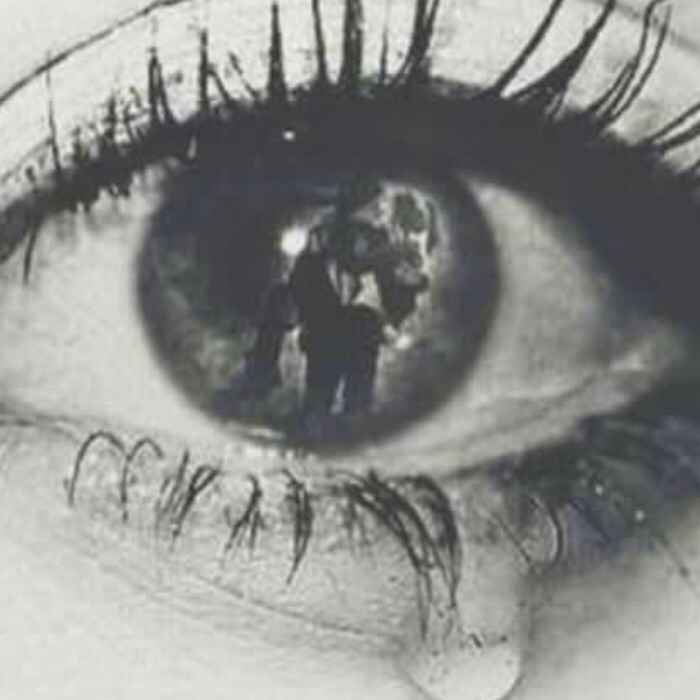
Oddly enough, when you stop asking yourself this question, at first you will feel sad. Why? Because, having closed it for yourself, you will give up the hope that one day a miracle will happen and, with the wave of a magic wand, all evil will disappear.
You hoped that this miracle would happen due to the correct answer, and giving up looking for it is excruciating, but this emotional pain must be endured. Seek professional help and support if you find it too difficult to bear on your own.
As long as you continue to ask yourself this question, you yourself remain the main obstacle to healing. Such is the cruel truth.
2. What should I change in myself to make her love me?
This question seems to be a part of the previous one, but in reality it is independent and has an answer: nothing.
You could not change anything in yourself to make your mother treat you differently, because her reaction to you does not depend on you in any way and is entirely and completely connected with her.
It is necessary to separate this situation from the albeit not simple, but still filled with care relationship between mother and child.
This situation persists even when the child grows up, because the relationship between mother and daughter never becomes a partner, and the daughter expects something from the mother, and not vice versa. Let's start with what the experts call "quality of fit," a concept that focuses on the personalities of the baby and mother.
Consider the case of a relatively introverted mother who greatly needs time for herself and appreciates silence. She has two children: one is calm, independent and rarely behaving reactively, the other is emotionally demanding, mobile and active. With which of the two will such a mother be easier?
The answer is obvious: with a child whose needs are closer to her own. And it is in this case that we will talk about a high "quality of compliance". However, the parent-child relationship is not one of equals, and it is the duty of the mother to recognize the difficulties involved in raising a child who is not like her and to find ways to cope with them.
The solution is not to blame, avoid, or ignore the child who expects his mother to meet his emotional needs so that he can grow and develop safely.
See also
13 typical phrases of toxic parents: what they really mean and how to respond to them correctly
Childhood with imperfect parents: 6 types of family relationships that hurt us
If you grew up in an atmosphere of ridicule over your "excessive sensitivity", if you were bullied when you cried after the words that you always blow out of molehills, that you are unbearable - consider whether your mother did her motherly work well or badly for you, and it does not matter how much you differed from her ideal.
Being a good mother means coping with the hard work of accepting your child even in a situation of mutual inadequacy.
Therefore, nothing ever depended on you or on your inability to meet the requirements of the mother. Responsibility and obligations lie with an adult, a parent.
Sometimes parents treat their children differently. This common and well-studied pattern is abbreviated as PPO - Parental Differential Treatment (PDT) - and is found even in loving families. Of course, no matter what science says, cultural myths insist that motherly love goes to all children equally.
However, this phenomenon is not only widespread, but also very destructive. Research shows that PPO continues to affect even grown children, as well as relationships between adult siblings.
Research has shown that the emotional pain of a child seeing a sister or brother treated better than him affects him more than the love he receives from that parent. What is a mother to do if she just loves Ellie more than Jackie?
A conscious and caring mother insists on equal treatment of her children because she knows that it will be fair. A good mother sees what she is doing and changes her behavior as much as possible. If the mother does not love the child, then she accepts favoritism and bullying as a given, which radically changes the situation.
So, back to the question of what you could change about yourself to win your mother's love. I repeat the answer - nothing, because it never depended on you. Leaving this question out at first will make you feel powerless and frustrated because you enjoyed the illusion of control it gave.
As long as you had this option to change, there was also the possibility, at least in your mind, that everything could be fixed, and it fed your reluctance to face reality. This is another way to stay in a vicious circle, sometimes for decades.
It is difficult to give up hope and the illusion of control, but sometimes it is necessary. Your case is just that. Be patient!
3. Is it my fault that she doesn't love me?
Blaming oneself is natural for a child, and this is understandable. After all, our parents are older, taller, they know more and are the undisputed authorities in the small world of our childhood. Therefore, there must be something that we did wrong, because of which we are not loved.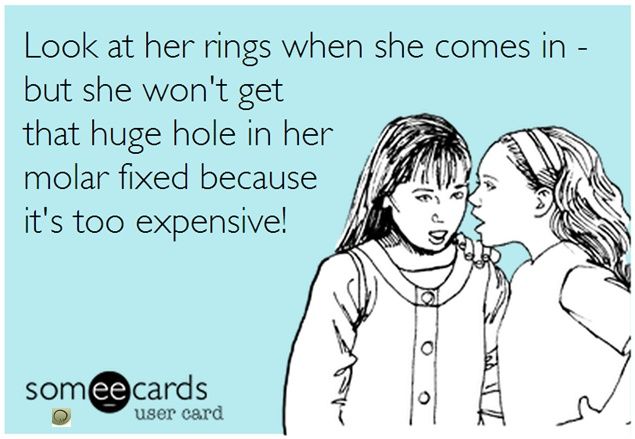
The child is driven to this conclusion by what he hears about himself from his mother: that he is difficult or naughty, stupid or lazy, and simply not good enough.
Self-blame can haunt us even after childhood is left behind, especially when there are sisters or brothers whom the mother obviously loves.
Self-blame maintains an internal acceptance of abuse: we believe it is simply the norm in our family and most likely in most other families - until we discover that it is not - and deny that it is offensive or traumatic.
In addition, self-blame is also fueled by deep-seated shame: we are ashamed of our shortcomings and, of course, of being unloved in a world where every mother loves her child.
Some research suggests that blaming yourself, as well as denying abuse, seems to many to be a better alternative. Paradoxical, but true! A number of studies have identified significant differences between victims' assessment of acts as abusive and the scientific definition of abuse.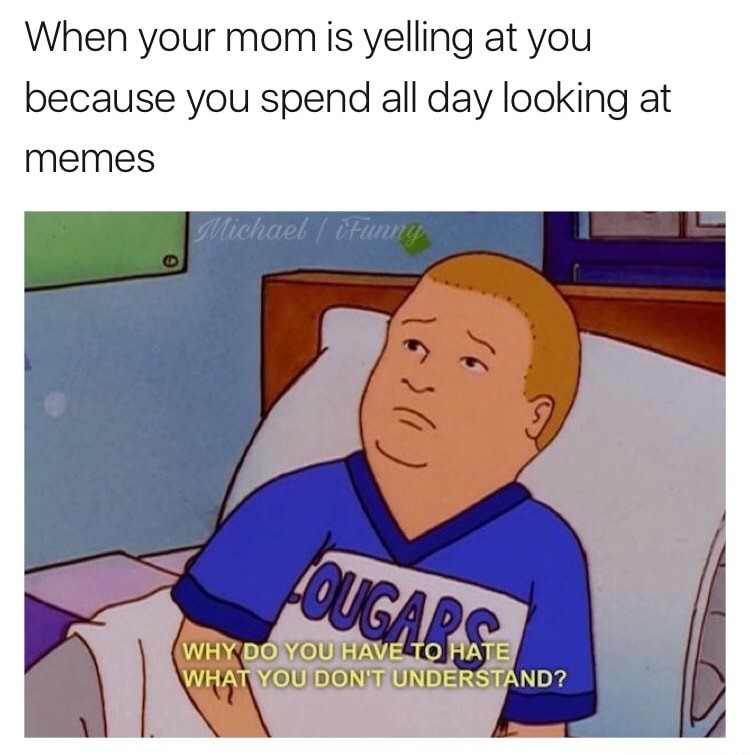
For example, in a large 1994 survey of 11,600 college students, only 26% of respondents who had experienced severe physical punishment or abuse (some even required medical attention!) tended to view it as abusive . But how is it possible for a person to suffer from abuse, especially from a parent, and not want to openly call a spade a spade?
This question was answered by Rachel Goldsmith and Jennifer Freud. Their study was designed to find out if people who have been physically, sexually or emotionally abused have trouble recognizing their feelings.
The answer, not surprisingly, was positive. It also turned out that the victims of emotional abuse, in the definition of the researchers, rarely describe their treatment as cruel. How can this be explained?
Scholars point to the fact that because children are essentially housebound, they find ways to adapt to hostile environments.
Their strategies include denial and dissociation: if you do not let threatening information into your mind, it is easier to withstand everyday stress, but later this makes it difficult to realize what happened.

Maybe interesting
What is “painful intimacy” and how can children and parents stop being a burden to each other
Should we forgive our parents and should we love them
Obviously, this discovery also applies to you, explaining in many ways why you deny and are not quick to acknowledge abuse by a mother or another person. Even more valuable, however, are the scientists' findings about why children tend to attribute abuse to being "bad."
Self-blame, the researchers write, “blocks the thought that the adult caregiver cannot be trusted and gives the illusion of self-control.” Again, what could be scarier than realizing that it’s not safe for you to be around the very person who is entrusted with taking care of you? This explains why victims of abuse prefer to blame themselves for everything - it's less scary and there is hope that you can fix everything.
<…>
4. What could I be if I had a loving mother?
This question is a road to nowhere, and it usually arises when the daughter begins to realize the harm done to her and experiences great anger and resentment due to the fact that she was deprived of the most necessary things. Some of that anger may be self-directed, because it took her so long to see her mother in the true light, because she denied the harm and tried to appease her mother instead of acting, and the like.
Some of that anger may be self-directed, because it took her so long to see her mother in the true light, because she denied the harm and tried to appease her mother instead of acting, and the like.
This question also distracts from working on yourself, which helps you heal and become the best version of yourself - and not someone else. And the good news is that healing is possible. So get that question out of your head and go ahead light.
It's also good that refusing this question doesn't hurt. If you start thinking about it, tell yourself "no" and ask any of the many productive questions offered in this book.
5. If my own mother did not love me, then who will?
This is a secret fear that a little unloved girl hides deep inside. It is reinforced by self-accusations and accompanies her in adult life, now hiding in the shadows, now coming to the surface.
Behind the fear is a powerful cultural myth—that all mothers love their children with unconditional love—and the tremendous power a mother has over her children.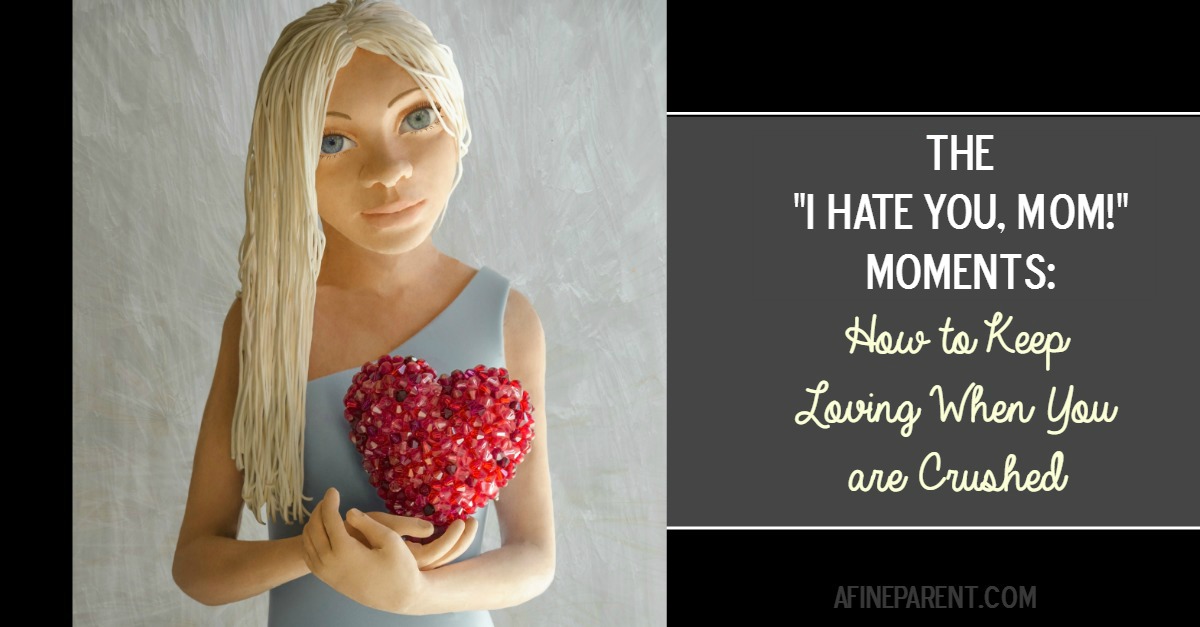 This fear makes the daughter feel like an outcast who never feels comfortable with anyone and is always ready to be rejected.
This fear makes the daughter feel like an outcast who never feels comfortable with anyone and is always ready to be rejected.
Of course, such a question could not arise without the certainty that the sun, around which the unloved daughter revolves, is not only the only source of love, but also a storehouse of wisdom and insight. This is the question of a frightened and lonely child, and although he pursues his victim again and again, it must be abandoned.
If you pull this question into the light of adult understanding, its source is immediately visible, especially if you allow yourself to remember all those people who did not believe your mother's false accusations when you were little.
Experts call relationships with such people "islands of safety", and these relationships can become a source of acquired secure attachment. By abandoning the "cursed" question, you can switch your attention to all those people who have shown love and kindness to you, supported you in the past and present. And it's not just about deep and intimate relationships.
And it's not just about deep and intimate relationships.
For example, I still remember the kind look and affectionate gestures of my teacher in the first grade and how well she made me feel good more than 60 years ago.
So, instead of asking, "If my own mother didn't love me, who will?" - ask yourself: "Who was and is for me a guiding beacon, the promised land, where I really feel good?"
Here, my friends, is a question worth asking.
6. Maybe I should have tried harder to fix things?
This question stems from a deep aspiration and hope — tormented, abused, bleeding, but still alive and fueled by the notion that all mothers are loving, which means that if something goes wrong, it’s only about mistakes or shortcomings daughters.
It is accompanied by a great sense of guilt, because no one thinks about the really important duties of a mother: she must not only love her child, but also achieve attunement to him, help him cope with his emotions and learn to restore peace of mind, raise him sufficiently confident in himself, so that he is ready for risk and possible failures, and also sees and perceives himself as a whole, with all the advantages and disadvantages.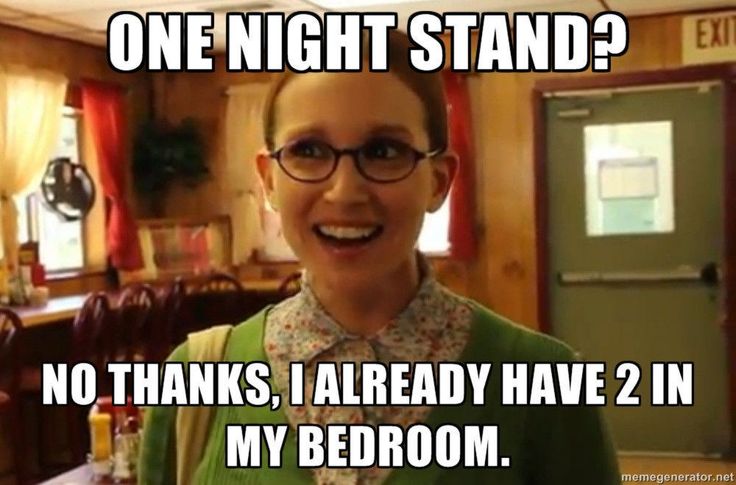
This question is also fueled by an unwillingness to admit that you were unable to change the relationship because it was beyond your capacity. As an adult, it hurts to know that any power you seemed to have was just an illusion.
It is hard to comprehend the fact that you could do nothing—literally nothing—other than maintain the status quo and endure the pain and humiliation it entailed.
What about the feeling of guilt and the thought that you are indebted to your mother because she fed, clothed and supported you?
Put them in the right context first. In fact, parents are required by law to provide clothing, food, and shelter for their children, and may be punished if they do not. If this is what it means to be a parent, then the orphanage can be called a place where children receive parental care.
Be aware of how reflexive your guilt is and trace it back to its source. Ask yourself to what extent your feelings of guilt are formed by the unfounded opinions of other people who did not even bother to listen to you and understand your point of view. And how much it is reinforced by the cultural myth of the mother...
And how much it is reinforced by the cultural myth of the mother...
You may also have personal beliefs, including religious beliefs, that are important to you and that lead you to ask this question. In this case, seek professional help to learn how to achieve some kind of balance where your views do not interfere with recovery and personal growth. Discussing such issues can bring great relief.
What if your mother doesn't love you? – Orthodox magazine “Foma”
Approximate reading time: 7 min.
-
100%
+
Embed code
Code copied
The following letter has come to the editorial office of Foma:
Hello. Tell me how to make my mother love me, or at least just begin to notice not only the bad in me. The fact is that my mother and I never spend time together "just like that." It feels like something has to happen to me for my mom to come over after work and really start a conversation about how I'm doing. Tell me, is it normal that mom doesn’t praise, doesn’t hug just like that? My progress in my studies or in my hobbies (I am engaged in drawing) or help around the house, she does not seem to notice, well, that is, completely. If the house is clean, as she needs, then she will simply remain silent. I am 13 years old. Lena.
Tell me, is it normal that mom doesn’t praise, doesn’t hug just like that? My progress in my studies or in my hobbies (I am engaged in drawing) or help around the house, she does not seem to notice, well, that is, completely. If the house is clean, as she needs, then she will simply remain silent. I am 13 years old. Lena.
We asked Yulia Shiyanovskaya , counseling psychologist at the Center for Social Assistance to Families with Children (Moscow), to answer.
You have to be able to show feelings
Hello, Lena. In your question, you can hear longing and annoyance from the fact that the relationship with your mother is not the same as we would like. Your question attracted my attention by the fact that you speak about your feelings and experiences not only for yourself, but also for your mother. Rarely, guys your age can share responsibility for some kind of failure or bad relationship, as in your case, between themselves and another person. It is easier for people to talk about the wrong of another. It is very right that you pay attention to your feelings that you experience in communication with your mother, and you want to fix something. The fact that you are looking for ways out of a difficult situation, turning to adults for support and advice, means that you are an active person who is ready for action. This is very encouraging, and I hope my answer helps you.
It is very right that you pay attention to your feelings that you experience in communication with your mother, and you want to fix something. The fact that you are looking for ways out of a difficult situation, turning to adults for support and advice, means that you are an active person who is ready for action. This is very encouraging, and I hope my answer helps you.
Before answering the question “How to make my mother love me”, I want to note that mothers' love for their children is a voluntary, bright feeling. And unconditional. Children don't have to do something like that to earn their mother's love. Because, by nature, their mothers love their children simply because it is their child, and it doesn’t matter if it’s a daughter or a son, what appearance he has, what abilities and successes. But it is important how a person shows his feelings (including love), whether he knows how to do it. After all, it depends on how the mother shows love for the child, what kind of relationship will develop between them.
And this ability—that is, the ability to show one's love—is formed in a mother when she has not yet become a mother, when she is still a girl, when she grows and matures in her own family. During this period, the expectant mother learns not only to accept the love of her parents, but also to give her love in return.
That is, sometimes it happens that love really exists, it's just invisible. In this case, you can tell the other person how you feel and change the way he expresses his love. You can learn to understand and hear each other in order to correctly show your love and care.
Why do parents scold instead of praise?
You ask a good question, or, in other words, “set a task”: how to make your mother notice not only the bad in you.
From your letter it appears that your mother often criticizes you and rarely praises you when you have done something good or received high marks.
But praise is an important part of education. It gives a person of any age a sense of faith in his own strength, a feeling that he has done the right thing.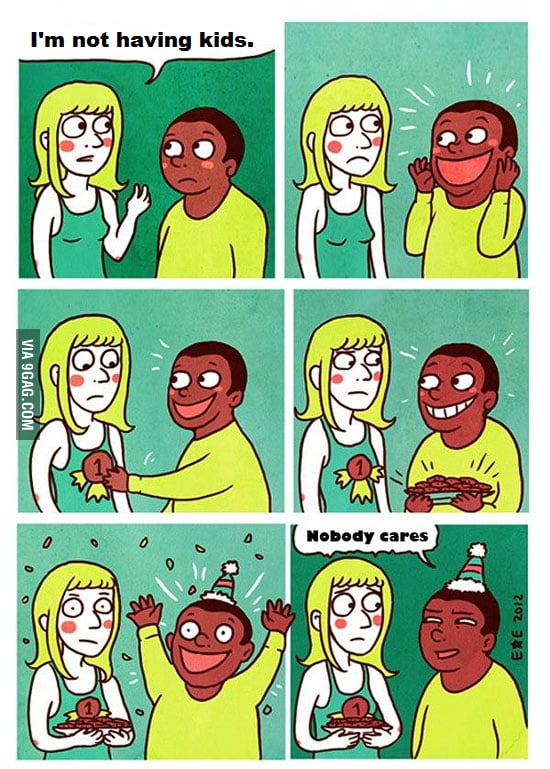 And the praise of the mother gives the child a feeling of love, makes it clear that he is important to others.
And the praise of the mother gives the child a feeling of love, makes it clear that he is important to others.
Why do parents not consider it necessary to praise their child when communicating with him? This happens for various reasons, and we will analyze the most significant of them in order to understand how to proceed.
The parent was rarely praised in childhood
The parent himself grew up in a family where praise was rare. And I just didn’t learn, I wasn’t used to expressing approval to others. But believe me, the parent notices everything, understands. He just doesn’t know how to tell you about it, because he was not taught to support and encourage in a difficult situation. Having become a parent, such a “child” is more likely to criticize his children, thinking that by doing so he instills in them firmness of character and the will to win. With this style of parenting, the parent remembers how he himself coped with difficulties alone in his childhood, believes that those difficulties tempered his character, and now he wants the same for his children.
A parent is guided by the opinions of others
It is very important for such a parent what others think of him: neighbors, friends, acquaintances, relatives, work colleagues. The parent is very afraid of condemnation from the outside, afraid that they might think badly of him as a parent. And then he criticizes his child so that he maintains a positive image of the “right parent” or “good family”. That is, the parent is constantly seeking the approval of significant people.
The parent competes with the child
The parent, as it were, competes with his own child in knowledge, skills, qualities (and even sometimes in beauty), and then he will not miss the opportunity, evaluating the work of the child, to say that he could have done better . Or in a conversation, it is important for a parent to be right in all matters. Or in response to children's reflections - to point out inaccuracies without expressing approval and support.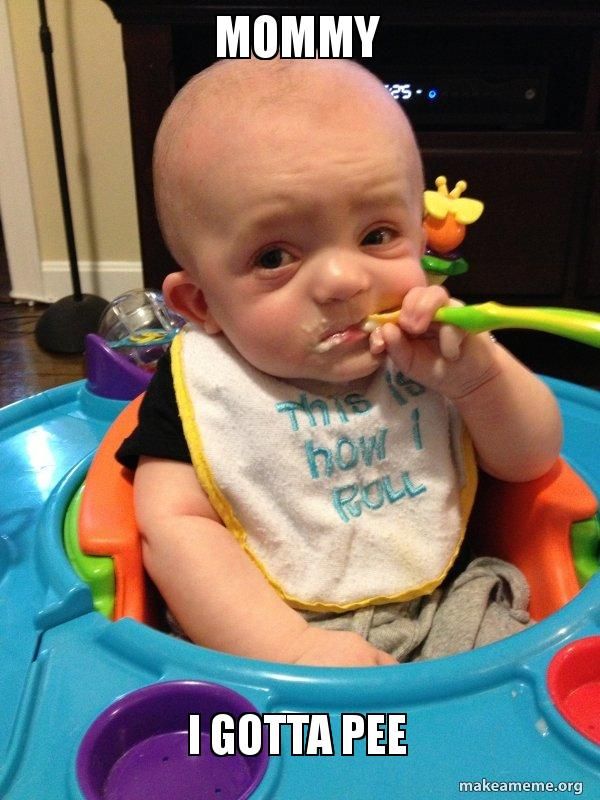
The parent suffers from his own problems
A parent actually knows how to praise, thank a child, and knows how to do it, he does not bother with the opinions of others and in a calm environment always found time for praise, encouragement and general leisure with children. But recently the situation has changed dramatically. Most likely, the reason here is personal fatigue, exhaustion at work, the need to solve a lot of everyday issues. Therefore, he simply does not find the strength to tell the child even a simple “thank you” for helping around the house or for a good study, and so on. Psychologists in such cases say that these are symptoms of incipient emotional or professional burnout.
In such a situation, a warm, calm conversation with mother will help. It is necessary to provide support and, of course, show that you understand what difficulties mom has been experiencing lately. On the website of the magazine "Foma" there is my article "What to do if your mother is psychologically ill" - if you have the opportunity, read how you can provide psychological support to your mother in difficult times.
What are you going to do?
If your case is similar to the first three, I'm sorry. I really feel for you and your mom. After all, it turns out that she is even more unhappy than you. How to be in such a situation? Everything is very simple and very difficult at the same time.
First, accept the fact that you can't re-educate your mother or change her behavior without the help of a specialist . To help mom, you need a good psychologist, to whom she can tell her story. Mom loves you and supports you, but only as much as she can. Believe me, now mom gives you exactly as much as she herself has. Your mother is very, very sorry that she says what she says and has a relationship with you the way she has. But she does not know how to change - because every time in a stressful situation, an unconscious script from childhood works for her. But your mom is very lucky to have you. Because you want to fix your relationship.
Secondly, from your letter I understood that you are quite sensible, without undue exaggeration, you yourself can evaluate your successes and achievements in studies, drawing and putting things in order at home. This is your forte. To be able to adequately evaluate oneself is very important, and this skill must be strengthened and developed in oneself. Don't be afraid and don't be shy about telling yourself that you're doing well, accepting praise from other adults and friends. Do not be embarrassed and hide your successes from others.
This is your forte. To be able to adequately evaluate oneself is very important, and this skill must be strengthened and developed in oneself. Don't be afraid and don't be shy about telling yourself that you're doing well, accepting praise from other adults and friends. Do not be embarrassed and hide your successes from others.
When a person can support and praise himself, despite external circumstances, psychologists say that he has a well-developed “supporting inner parent”. Learn to praise yourself and be happy for yourself - this will become your internal resource, which you can rely on in the future in difficult times. Mom's words will always have a special meaning for you, but if you understand why mom says this and not otherwise, then you can react to her words in a completely different way and respond and act accordingly .
After all, when a parent expresses dissatisfaction with his child, he is actually expressing dissatisfaction with himself. He is vulnerable, and he just as much wants love and care for himself - because at that moment his mother became the very “child” from whom they expected something better, more and generally different. Pay attention to this - and maybe you will want to hug her or feel sorry for her, say something or just remain silent. I don't know how you know how to show support and care, but if you can give it to your mother, it is likely that you will help both of you.
He is vulnerable, and he just as much wants love and care for himself - because at that moment his mother became the very “child” from whom they expected something better, more and generally different. Pay attention to this - and maybe you will want to hug her or feel sorry for her, say something or just remain silent. I don't know how you know how to show support and care, but if you can give it to your mother, it is likely that you will help both of you.
Summing up, I will say: do not rush to be offended by your mother or make claims, do not expect from her now that she will become a source of support for you. Try to talk to her about your relationship and what you lack in it.
In such a conversation, it is very important to draw your mother's attention to the description of your feelings. To then start discussing , how can you both find a way to change for the better. If mom agrees with you that she wants to praise you and communicate with you in a different way, offer to seek help from a psychologist.














